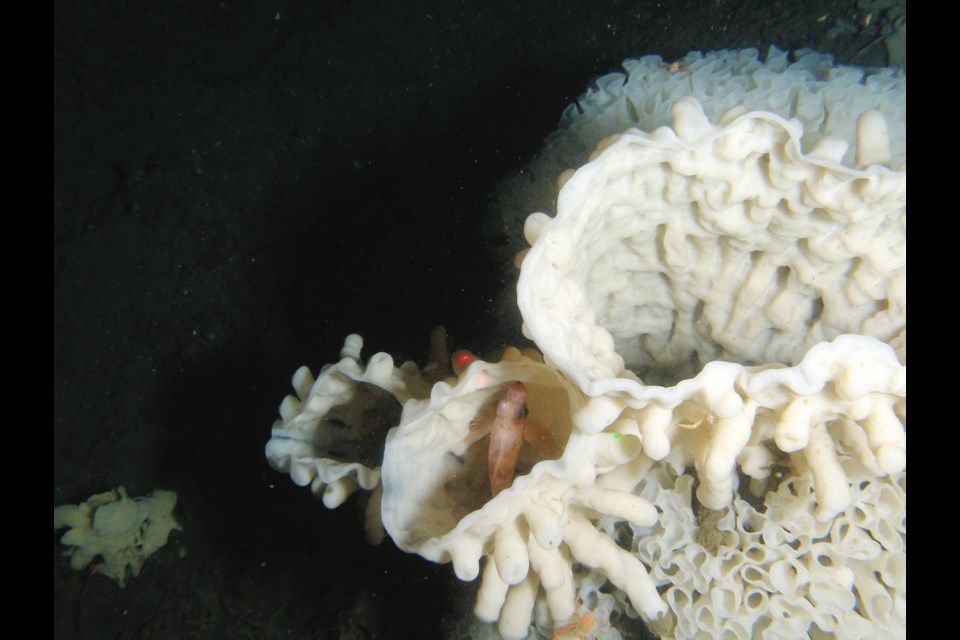A proposed expansion of the federal government’s marine conservation powers could speed protection at Race Rocks and eliminate drilling permits in conservation areas such as Hecate Strait.
Fisheries Minister Dominic LeBlanc introduced amendments to the Oceans Act and Canada Petroleum Resources Act this week.
The proposal would create interim protection status for sensitive areas, which could include places such as Race Rocks, the biodiverse ecosystem around nine islets in Juan de Fuca Strait.
The interim status would speed conservation in an area by prohibiting new, potentially disruptive activities such as fishing or drilling while the ecosystem is being assessed.
Once interim protection is granted, the Department of Fisheries and Oceans and the Canadian Coast Guard would have up to five years to recommend that a permanent marine protection area be put in place.
Race Rocks has been suggested as a marine protection area since 1998. While its existing status as an ecological reserve already protects it from dumping, dredging and resource extraction, the new designation would add protection to the sea life in its water column, which is not currently protected.
The amendments would also give the minister power to cancel drilling interests in a marine protection area and provide compensation, should no other option be agreed upon.
That could add extra protection to three sponge-glass reefs north of Vancouver Island and in Hecate Strait near Haida Gwaii, said Alexandra Barron, ocean conservation manager for the Canadian Parks and Wilderness Society’s B.C. chapter.
The Hecate Strait and Queen Charlotte Sound reefs are the largest and most pristine glass-sponge reefs in the world. They are 9,000 years old and cover 1,000 square kilometres, reaching heights of an eight-storey building, according to the society.
The reefs were designated a marine protected area in February.
While there is no active drilling because of a moratorium, several oil and gas companies hold legacy permits in the area, said Candace Newman, senior policy adviser with the petroleum management branch of Natural Resources Canada, during a technical briefing of proposed amendments.
“There are a number of interest owners who hold interests or permits in that area,” Newman said.
“They span from the northern part of Haida Gwaii, between Haida Gwaii and the mainland, south to the northern part of Vancouver Island.”
Barron said it’s a positive move, since drilling could continue if the moratorium were lifted.
She said the society is one of many calling for a blanket ban on oil and gas drilling within marine protected areas — not a case-by-case assessment.
“It’s a good start, they’ve taken some important first steps. We would like to see some of those measures go further,” she said.
Fifteen university marine scientists from Victoria to St. John’s, N.L., also penned a letter to Fisheries Minister Dominic LeBlanc Wednesday, saying the marine protection area designation don’t go far enough.
In 2011, the federal government committed to protect at least 10 per cent of Canadian waters by 2020. The Trudeau government has said it will reach the five per cent mark this year.
But the scientists say only about one per cent is protected.
“Of this, only about 0.1 per cent is strongly protected by restricting resource extraction activities that could harm species of conservation value,” the letter says.
This puts Canada behind other G8 countries in both the quantity and quality of protection, it says.
Science shows that the most effective marine-protection policies ban extractive activities in areas of high biodiversity, said Natalie Ban, an assistant professor at the University of Victoria’s school of environment, who signed the letter.
Ban said there’s a “double standard” in Canada’s protection of land and sea resources.
“We would never stand for having oil and gas extraction in one of our terrestrial parks, so why do we allow it in the ocean?” she said.



